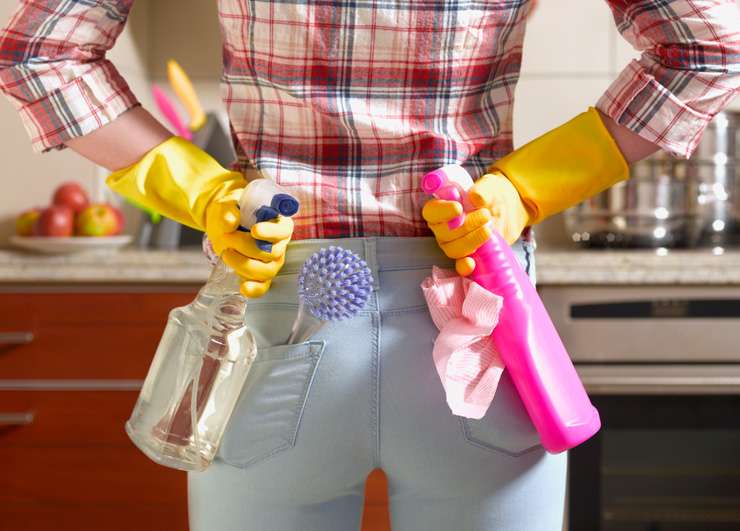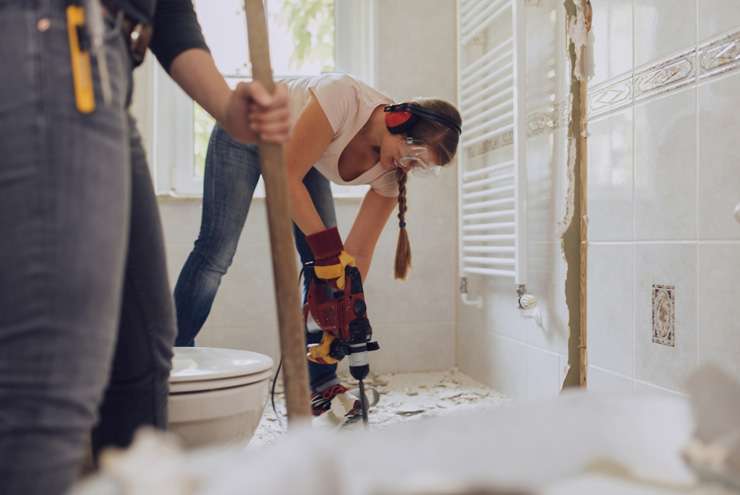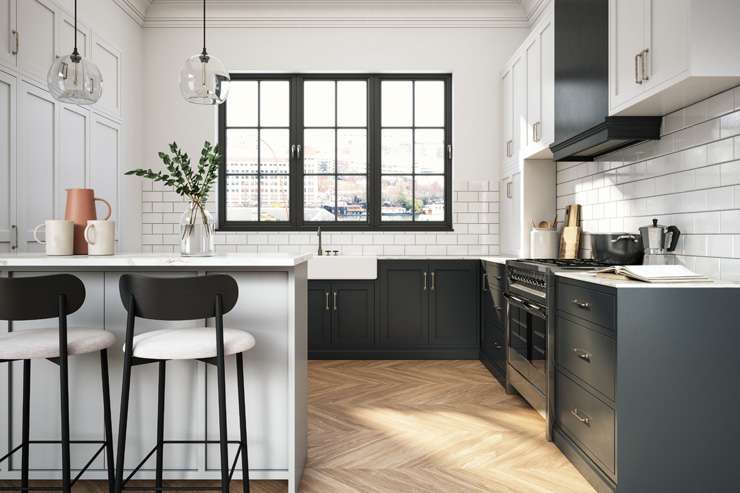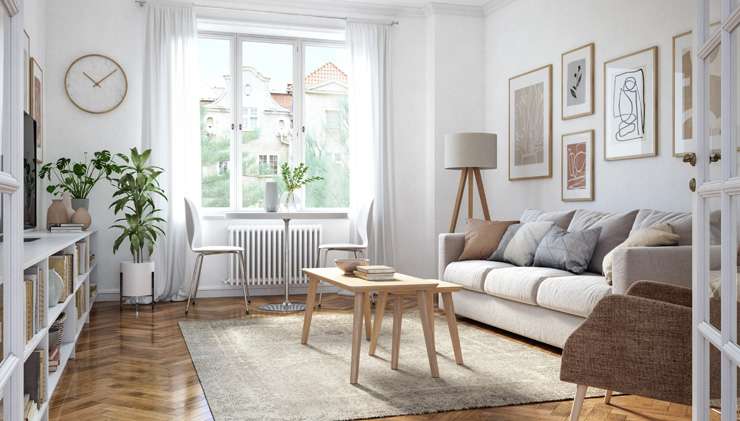When you’re selling a house, great preparation will help your chances of finding a buyer and getting the best price.
Getting started
You’ll need to declutter, de-personalise, and get ready for open homes. In some cases, renovation may pay off. Start by stepping back and viewing the home from a buyer’s perspective. Asking friends, family and real estate agents for honest input can really help.
Important things to know:
Start your property search
- Renovations can pay off, but they don’t always. Seek advice from real estate agents, and get quotes before starting any work.
- Always make sure your home looks its best from the street. You don’t want potential buyers leaving before they step through the front door.
- Focus on the things that give you the biggest bang for your buck. That’s jobs such as decluttering, de-personalising, cleaning, touch-ups and street appeal.
- Try not to get too emotionally attached to your home’s existing look. If your home stager thinks your décor is dated, accept the advice.
Sit down and write a to-do list of everything you need to do and add deadlines for each.
1. Declutter
Having too much stuff in a home makes it look small and sometimes undesirable. You want buyers to see your home, not your belongings. Buyers love storage room, and a decluttered garage or loft will appeal. Don’t try to hide the clutter. Buyers tend to open drawers and if they’re jam packed it will give the impression of no space. A decluttered home adds joy.

Decluttering your home and opening up spaces can help people better visualise how they'd live there. Photo / Getty Images
You need to remove personal items such as photos, toys, sporting equipment, excess clothes, and even fridge magnets. Sell, donate, or store these items. De-personalising also means replacing eclectic items with neutral designs.
2. Deep clean
Make your home sparkle. Clean it inside and out to within an inch of its life before it goes on the market. Smells such as pets and old cooking are a turn-off to potential buyers.
Improve street appeal. Look at your property from the road. Some buyers won’t even walk in if the entrance looks run-down or the garden is messy. Fix broken fences, replace the letterbox if it’s old, paint the front door, remove or trim oversized plants, and load up garden beds with fresh bark. Quality potted plants often lift the look of the exterior and entranceway.
3. Touch-ups
Although a full renovation may not recoup its cost, a touch-up will often have a good return on investment and creates great first impressions. If you can’t afford all the work, focus on the most important rooms such as the lounge and kitchen.
What to fix in a house before selling
Do all the little repair jobs you’ve been putting off for years. If buyers go to open windows to find them stuck, see evidence of dripping taps, or find kitchen cupboards hanging loose, they’ll get the impression that the home hasn’t been well looked after.
Simple jobs can add value to your home, but large repair jobs such as replacing worn-out roofs may make economic sense.
What not to fix when selling a house
Don’t go crazy and try to tackle everything. Also don’t start large jobs that you know you can’t finish. Unfinished work may look worse to buyers than simply leaving the work.
Is it worth renovating a house before selling?
Many sellers are convinced they need to renovate to get the best price. That’s not always the case.
Quite often full kitchen and bathroom renovations and extensions don’t pay for themselves. Major renovations can push a home into a higher price bracket that not all can afford. Or buyers may want to buy the worst house in a good street and pay for renovating to their own taste.

Renovations can improve your home but they can also be costly. Don't overcapitalise on your home or start a project you can't finish before you go to sell. Photo / Getty Images
Before going down the renovation route, create a detailed spreadsheet and think long and hard about the pros and cons. Take advice from your estate agent, mortgage adviser (broker) and other professionals such as valuers and quantity surveyors.
It may be that simple painting, decorating, and gardening is all you need to do.
What things are worth renovating to make it more likely you will sell and/or add the most value?
Unless you have limitless money the question of how much does it cost to renovate arises. Your real estate agent can make suggestions based on what buyers look for in your market. Ask your agent what to renovate before selling if you’re not sure.
- Interior: A coat of fresh paint and up-to-date colours both inside and outside can make a huge difference to a home sale. It makes the home look modern and smell fresh. Colours date quite quickly so make sure you choose up-to-date colours.
- Kitchen: Take a good look at the kitchen. If you don't want to put a new kitchen in, consider updating the cabinet doors and handles, splashback, bench top, and appliances. Fresh paint also adds value.
- Bathroom: Like the kitchen, a nice bathroom helps sell a property. But sometimes a new bathroom vanity, and updated colours are all you need to do. Think twice before ripping out and moving the existing fixtures. That’s expensive.

A good-looking kitchen can increase the value of your home in the eyes of buyers. Photo / Getty Images
- Exterior: Consider painting trims, and/or the entire house if necessary if it looks shabby. Fix fences.
- Garden: It’s essential to tidy the garden when you are selling, especially at the front. Mow the lawns regularly and edge all the paths. Get a tree surgeon to top all the trees and consider removing overgrown shrubs and replanting with something more fashionable.
How to stage a house for sale
Home staging sells. It involves replacing your furniture and accessories with stylish ones to dress up the home with a nice modern look.
Home stagers are usually interior decorators and have a warehouse of furniture and other items that can make your home look a million dollars. Typically, the staging will stay in place for the duration of the marketing period.
Staging appeals to buyer’s emotions. They see a home they’d love to live in. Even a home in need of a total do-up looks a whole lot better with staging. It helps buyers imagine themselves living there.
Home staging is useful in all markets, but especially in a buyer’s market to make the property stand out from all the others being sold.
Most homeowners employ a professional to do their home staging. Ask locals or your real estate agent for a recommendation. Sellers with impeccable taste and time on their hands can do it themselves.
Or if you already have nice furniture, the home staging company will keep the best of your items and supplement them with whatever is needed.

Home staging can save you the effort of trying to present your property yourself. Photo / Getty Images
DIY home staging involves decluttering and de-personalising and then dressing the home to appeal to potential buyers. Then it’s a matter of using stylish modern furniture, furnishings and other touches.
You might want to hire furniture, or shop for items that you could take with you to your new home, or sell on.
Staging for an average home costs around $3000, but typically pays for itself. For high-end homes, however, the price could be as much as $10,000 to $15,000.
How to prepare for an open home
You’re ready for open home, and now you need to:
- Clean every single corner of your home. You might want to get a professional cleaner in before each open home if you’re still living there.
- Open every window to air out the rooms for a couple of hours.
- Open curtains and turn on the lights if necessary to lighten the place up.
- Switch on heating or cooling to make the temperature appealing.
- Remove personal items such as pyjamas, toothpaste and shampoo bottles.
- Take your pets out for the day.
- Consider buying some flowers if the agent or home stager hasn’t.
Read part six of our Home Sellers Guide: You've sold your house - what happens next?













































































